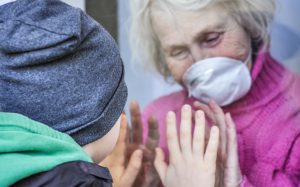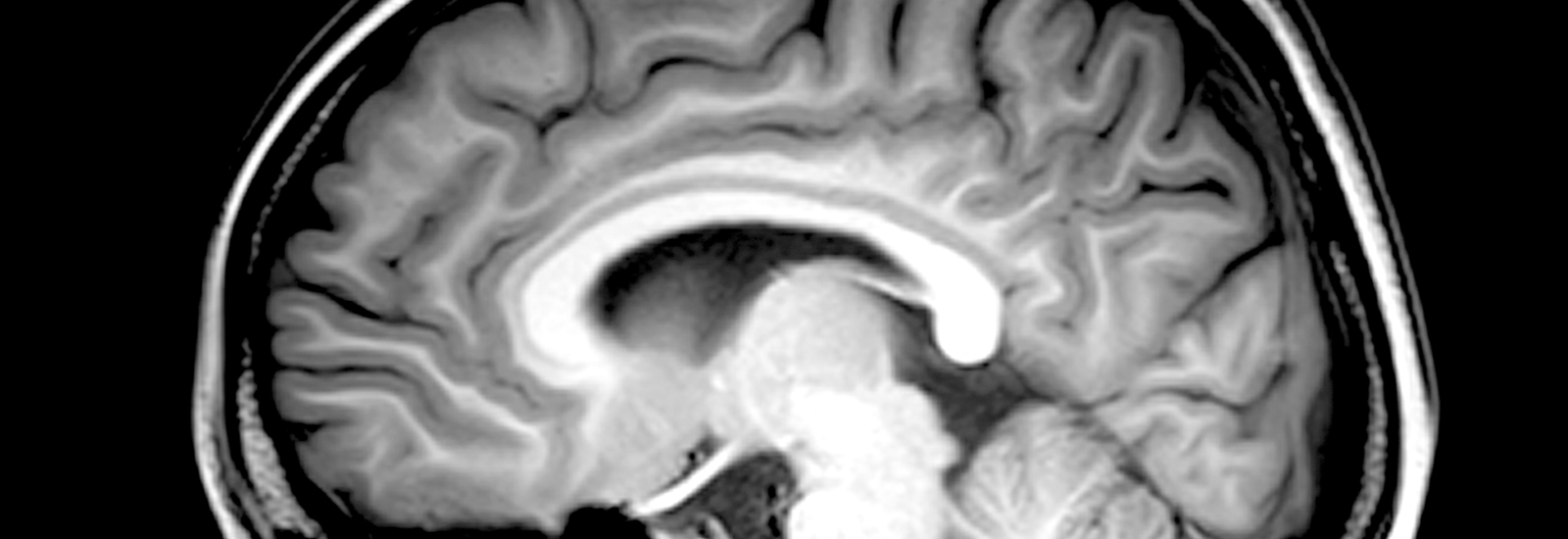Professor Patricia Riddell explains to CONNECTED why some people find it harder to observe social distancing measures than others, based on individual beliefs and past experiences.
 As a Professor of Applied Neuroscience working in both Reading’s School of Psychology and Clinical Language Sciences and Henley Business School, Professor Riddell is no stranger to applying her neuroscience research to the real world on a regular basis. With the recent rules of lockdown and social distancing implemented by the UK government, it is clear that some people have responded very differently to these recent measures. Some seem appalled, others seem reassured.
As a Professor of Applied Neuroscience working in both Reading’s School of Psychology and Clinical Language Sciences and Henley Business School, Professor Riddell is no stranger to applying her neuroscience research to the real world on a regular basis. With the recent rules of lockdown and social distancing implemented by the UK government, it is clear that some people have responded very differently to these recent measures. Some seem appalled, others seem reassured.
Professor Riddell explores what might account for these differences, and how the ways in which the brain processes information can be used to design future interventions to change people’s behaviour for the better.
Reacting to lockdown
It is easy to think that we are all reacting to the same COVID-19 events in the world, and so should therefore, all have similar responses to them however, it is not as simple as this. A human being does not have the capacity to capture all the information that is coming at them in one ago, instead we pay attention to the information that is most relevant to us and use it to create an interpretation of what is happening in the world. We tell ourselves a story about what is happening and then react to this story. Professor Riddell explains:
“We each have different experiences and so are more likely to pay attention to different parts of an event. The bits we focus on, when put together, will form a story which will then drive our response to the situation.
“Knowing that we are constructing our beliefs about the world based on our past experiences, we can begin to think about what differences there might be which would cause people to interpret recent events so differently.”
With these thoughts in mind, Professor Riddell explains four ways that might influence an individual’s reaction to the current COVID-19 pandemic.
Good versus bad outcomes
One of the main functions of our brain is to notice opportunities that bring rewards and pitfalls. Our perception of possible rewards and punishments is key here, but individuals weight these two items very differently and can sit at complete opposite ends of the spectrum.

In the current lockdown climate, different groups of people will hear government messages in different ways. The group that sees only reward will notice the opportunity to get out into the countryside now that their work is closed and the sun is shining. In contrast, the group that sees only pitfalls will be anxious about the possibility of catching COVID-19 and will want to protect themselves and their families by staying home. It all depends on how we perceive possible rewards and pitfalls associated with the crisis.
Introverts and extroverts
Professor Riddell explains that personality traits can also have an influence on how someone deals with COVID-19 and the current lockdown rules. For example, if you are not a people person, the idea of staying at home with your loved ones and not having to be sociable will actually be a relief however, to an extrovert, staying home is a real trial as they are cut off from their main sources of fun. Video calls, messaging and chat rooms can be a great way to alleviate this problem for extroverts, although there will always be a small craving for social contact.
Time on your hands?
Another factor that will highly influence a person’s reaction to lockdown is whether they are still able to maintain a routine. With a recent transition to remote working, some people will still remain as busy as ever in their working life however, for others, their routines will have been completely removed by the implications of COVID-19. Professor Riddell explains:
“It will be much easier for those who are busy and learning to manage their work in new ways to adhere to the new lockdown rules, than for those whose routine has been removed and who will be looking for new ways to fill their time.”
Staying tolerant in a time of uncertainty
The final factor that influences an individual’s reaction to an event is whether they are someone who is tolerant of certainty and ambiguity or not. It comes as no surprise that some people need certainty and like to feel as if they have some control over events, whilst others are happy to react to events spontaneously. At the extremes, there will be very different stories told about current messages on preventing the spread of COVID-19.
Those who are adverse to uncertainty will be looking for a clear and unambiguous message that communicates to them the right thing to do, whereas an individual who is tolerant to uncertainty will not need this clarification. Instead they will be looking for opportunities in the situation – what can I do now that was not possible before? You will find these individuals arranging play dates for their children by video call, running remote choirs and moving all their business online. It all depends on how we cope with uncertainty.
What can we do differently?
Reflecting on these four factors, Professor Riddell argues that there are many ways to react in this time of unprecedented change. No story that an individual makes up to fit their experiences to date will be wholly right or wrong, but those with different experiences will find it harder to understand each other. Professor Riddell therefore gives some final tips on how we can all work together during these unprecedented times:
“Remember that you have created your own reality and so has every other person you meet. Be willing to be curious about their story and to reflect on why this might be different to yours. Better still, try considering what you really know about the current situation and use this information to create several different stories.
“You might begin to realise that they are all just one of many possible outcomes. Pick one that predicts a better, but realistic, future for you. It might help you to better manage this uncertain time.”
Find out more about Professor Riddell’s research.
This article was first published in The Conversation on 25 March 2020.







